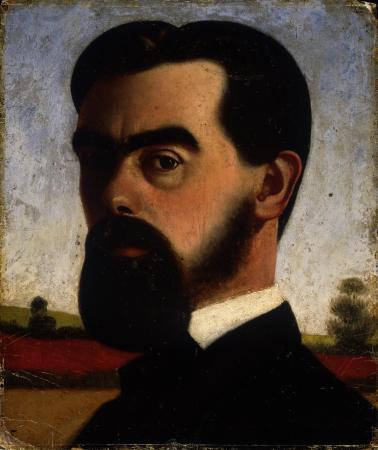“La vie est l’art de tirer des conclusions des prémisses insuffisantes.”
Life is the art of drawing sufficient conclusions from insufficient premises.
en
Samuel Butler était un écrivain britannique principalement connu pour sa satire Erewhon, ou De l’autre côté des montagnes. Wikipedia

“La vie est l’art de tirer des conclusions des prémisses insuffisantes.”
Life is the art of drawing sufficient conclusions from insufficient premises.
en
Life is like music, it must be composed by ear, feeling and instinct, not by rule. Nevertheless one had better know the rules, for they sometimes guide in doubtful cases, though not often
en
“On peut tous faire des grandes choses, si on sait qu’est-ce qu’une grande chose.”
All men can do great things, if they know what great things are.
en
The advantage of doing one’s praising for oneself is that one can lay it on so thick and exactly in the right places.
en
It is far safer to know too little than too much. People will condemn the one, though they will resent being called upon to exert themselves to follow the other.
en
St Anthony tempted the devils quite as much as they tempted him; for his peculiar sanctity was a greater temptation to tempt him than they could stand. Strictly speaking, it was the devils who were the more to be pitied, for they were led up by St Anthony to be tempted and fell, whereas St Anthony did not fall.
en
Life is not so much a riddle to be read as much as a Gordian knot that will get cut sooner or later.
en
Life is a superstition. But superstitions are not without their value. The snail's shell is a superstition, slugs have no shells and thrive just as well. But a snail without a shell would not be a slug unless it had also the slug's indifference to a shell.
en
“C'est facile d'avoir des avis plus justes quand tout le monde les a déjà.”
It's easy to have juster views when everybody else has them.
en
It has, I believe, been often remarked, that a hen is only an egg's way of making another egg.
en
“All animals, except man, know that the principal business of life is to enjoy it.”
Source: The Way of All Flesh (1903), Ch. 19
“It must be remembered that we have only heard one side of the case. God has written all the books.”
An Apology for the Devil
The Note-Books of Samuel Butler (1912), Part XIV - Higgledy-Piggledy
Source: The Note Books of Samuel Butler
“Sensible people get the greater part of their own dying done during their own lifetime.”
Source: The Way of All Flesh (1903), Ch. 24
Source: The Way of All Flesh (1903), Ch. 14
Contexte: Every man’s work, whether it be literature or music or pictures or architecture or anything else, is always a portrait of himself, and the more he tries to conceal himself the more clearly will his character appear in spite of him.
“To live is like to love — all reason is against it, and all healthy instinct for it.”
Life and Love
The Note-Books of Samuel Butler (1912), Part XIV - Higgledy-Piggledy
“Silence is not always tact and it is tact that is golden, not silence.”
Silence and Tact
The Note-Books of Samuel Butler (1912), Part XIV - Higgledy-Piggledy
“All men can do great things, if they know what great things are.”
Great Things
The Note-Books of Samuel Butler (1912), Part XI - Cash and Credit
Ego and Non-Ego
The Note-Books of Samuel Butler (1912), Part XX - First Principles
Waste-Paper Baskets
The Note-Books of Samuel Butler (1912), Part XIV - Higgledy-Piggledy
Inarticulate Touches
The Note-Books of Samuel Butler (1912), Part IX - A Painter's Views on Painting
“Feeling is an art and, like any other art, can be acquired by taking pains.”
Feeling
The Note-Books of Samuel Butler (1912), Part VI - Mind and Matter
Waste
The Note-Books of Samuel Butler (1912), Part VIII - Handel and Music
Source: Erewhon (1872), Ch. 27
“A hen is only an egg's way of making another egg.”
Life and Habit http://www.gutenberg.org/dirs/etext04/lfhb10h.htm, ch. 8 (1877)
“An energy is a soul — a something working in us.”
Matter and Mind, iii
The Note-Books of Samuel Butler (1912), Part VI - Mind and Matter
Cannibalism
The Note-Books of Samuel Butler (1912), Part II - Elementary Morality
Handel and Bach, i
The Note-Books of Samuel Butler (1912), Part VIII - Handel and Music
Intellectual Self-Indulgence
The Note-Books of Samuel Butler (1912), Part II - Elementary Morality
Philosophy and Equal Temperament
The Note-Books of Samuel Butler (1912), Part XX - First Principles
Ephemeral and Permanent Success
The Note-Books of Samuel Butler (1912), Part XI - Cash and Credit